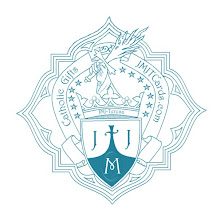"The third great saint of the Jesuit community is St. Francis Borgia. His family was at once most illustrious and most infamous. On one side he was nearly allied to the Emperor Charles V. ; on the other, he was of the same race as Alexander VI. and Caesar Borgia. Hereditary Duke of Gandia, a grandee of Spain, distinguished in his youth and manhood as courtier, soldier, statesman ; a happy husband, a happy father, — nothing that this world could offer of greatness or prosperity seemed wanting to crown his felicity, if this world could have sufficed for him. But what was the world of this enthusiastic, contemplative, tender, poetical nature. It was the Spanish court in the sixteenth century ; it was a subserviency to forms from which there could have been but two means of escape,— that personal emancipation which his position rendered impossible, or the exchange of the earthly for the spiritual — I will not say bondage, but — obedience. Tho manner in which this was brought about strikes us like a coup-de-theatre, but has all the authority of a fact, and all the solemnity of a sermon.
Several events of Borgia's young life had fostered in his mind a deep religious feeling, " a melancholy fear subdued by faith." The death of the poet Garcilasso de la Vega, his dear and intimate friend ; some dangerous maladies from which he had with difficulty recovered, — had predisposed him to set but little value upon life, although his love for his beautiful consort Eleonora de Castro, a numerous family of hopeful children, and the high employments to which he was called by his sovereign, had filled that life full of affections and duties. He was in his twenty-ninth year when the Empress Isabella, the first wife of Charles V., died in the bloom of her youth and beauty, and at a moment when her husband was celebrating his most brilliant triumphs. Borgia as her master of horse, and his wife Eleonora as her first lady of honor, were bound to attend the funeral cavalcade from Madrid to Granada, where Isabella was to be laid in the Capilla de los Reyes. The court ceremonial also required that, at the moment when the body was lowered into the tomb, the duke should raise the lid of the coffin, uncover the face, and swear to the identity of the royal remains committed to his charge. He did so, — he lifted the winding-sheet, he beheld the face of the beautiful and benign empress who had been his friend not less than his sovereign lady. It was a revelation of unspeakable horror, a sight the fancy dare not attempt to realize. He took the required oath; but, in the same hour, made a solemn vow to renounce the service of the earthly and the perishable, for the service of the heavenly and imperishable ; — to bend no more to mortal man, but only to the unchangeable, eternal God.
Yet this vow could not be at once fulfilled. The idea of throwing off his allegiance, of forsaking his Eleonora, or withdrawing her from the world and from her children, never entered his mind; and in the mean time the emperor appointed him viceroy of Catalonia. He repaired to his government; gave himself np to active duties ; attended to the administration of justice; cleared the country of robbers; encouraged agriculture; founded schools. At Barcelona, while occupied with plans for the education of the people, he became acquainted with one of the Jesuit Society, then in its infancy, — Father Aroas. Pleased with his intelligence and with the grand and comprehensive plan of education conceived as the basis of the new community, he entered into correspondence with Loyola, and thenceforth became but as an instrument in the hands of that wonderful man. The death of his wife, by which he was at first struck down by grief, emancipated him from the dearest of his earthly ties; but his long-considered resolve to quit the world was executed at last with a deliberation and solemnity worthy of himself. He spent six years in settling his affairs and providing for the welfare of his children; then, bidding a last farewell to every worldly care and domestic affection, he departed for Rome to place himself and every faculty of his being at the feet of St. Ignatius. That sagacious chief sent him to preach in Spain and Portugal; calculating, perhaps, on the effect to be produced on the popular mind by seeing the grandee of Spain, the favorite and minister of an emperor, metamorphosed into the humble Father Francis. It was in this character that he visited his cousin Charles V. soon after his abdication.
In 1555, Father Francis was elected the third General of his Society, and filled the office for seven years. Returning to Italy after an absence, he was taken ill at Ferrara, and just lived to reach Rome, where he died, spent with fatigues. He was at first buried in the Gesii at Rome, near his predecessors, Loyola; but, by order of his grandson, the Cardinal Duke of Lerma (the famous minister of Philip III.), his remains were exhumed, and borne in state to Madrid, where they now lie."
- Legends of the Monastic Orders as Represented in the Fine Arts. by Anna Jameson, 1884
Subscribe to:
Post Comments (Atom)







No comments:
Post a Comment